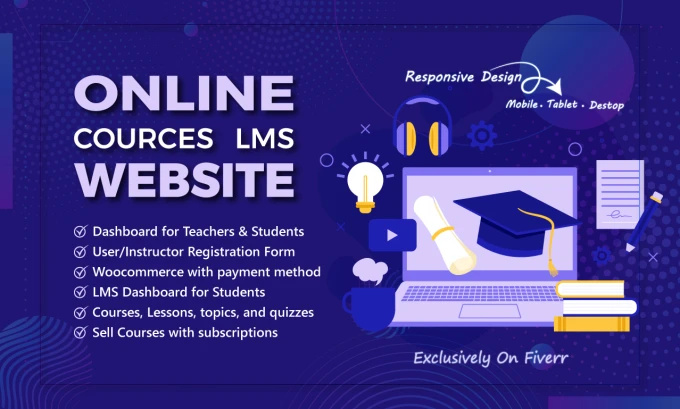🌍 Dive into a world of learning with our online education 💡
Creating a website for an online education system and course selling offers several advantages and is considered essential for various reasons:
Accessibility: A website provides a platform for students to access courses from anywhere with an internet connection. This accessibility enhances the reach of your educational offerings, allowing students from different geographical locations to enroll.
24/7 Availability: A website allows for constant availability, enabling students to learn at their own pace and schedule. This flexibility is crucial for working professionals or individuals with busy lifestyles who may not be able to attend traditional classes.
Global Reach: With a website, your online education system can reach a global audience. This can lead to increased enrollment, diversity among students, and a broader impact for your educational programs.
Scalability: Websites make it easier to scale your online education platform. As your courses and student base grow, a well-designed website can handle increased traffic and course offerings without significant logistical challenges.
Marketing and Promotion: Having a website allows you to market and promote your courses effectively. You can use various digital marketing strategies, including search engine optimization (SEO), social media marketing, and email campaigns, to attract a wider audience.
Payment Processing: A website facilitates easy and secure payment processing for course enrollment. This is crucial for managing transactions, handling subscriptions, and providing a seamless experience for students.
Course Management: Websites often come with content management systems (CMS) that make it easy to organize, update, and manage course content. This ensures that students have access to the latest materials and information.
Interaction and Communication: Websites enable communication between instructors and students through discussion forums, chat features, and email. This interaction is vital for fostering a sense of community and providing support to learners.
Analytics and Data Tracking: Websites allow you to collect data and analytics on user behavior. This information can help you understand student engagement, identify popular courses, and make data-driven decisions to improve your online education platform.
Brand Establishment: A professionally designed website contributes to the credibility and legitimacy of your online education system. It serves as a digital storefront, establishing your brand and building trust among potential students.
My Portfolio:- https://www.behance.net/dev_jubair/
Get Free Consultation:- https://calendly.com/developerjubair/30min
Hire ME:- https://www.fiverr.com/s/k4p2wg
#GlobalLearning #OnlineEducation #CourseMarketplace #DigitalLearningHub #EmpowerYourMind
In summary, a website for an online education system and course selling is a powerful tool that enhances accessibility, promotes scalability, and provides a platform for effective communication and marketing. It plays a crucial role in reaching a global audience and creating a seamless, engaging learning experience for students.
